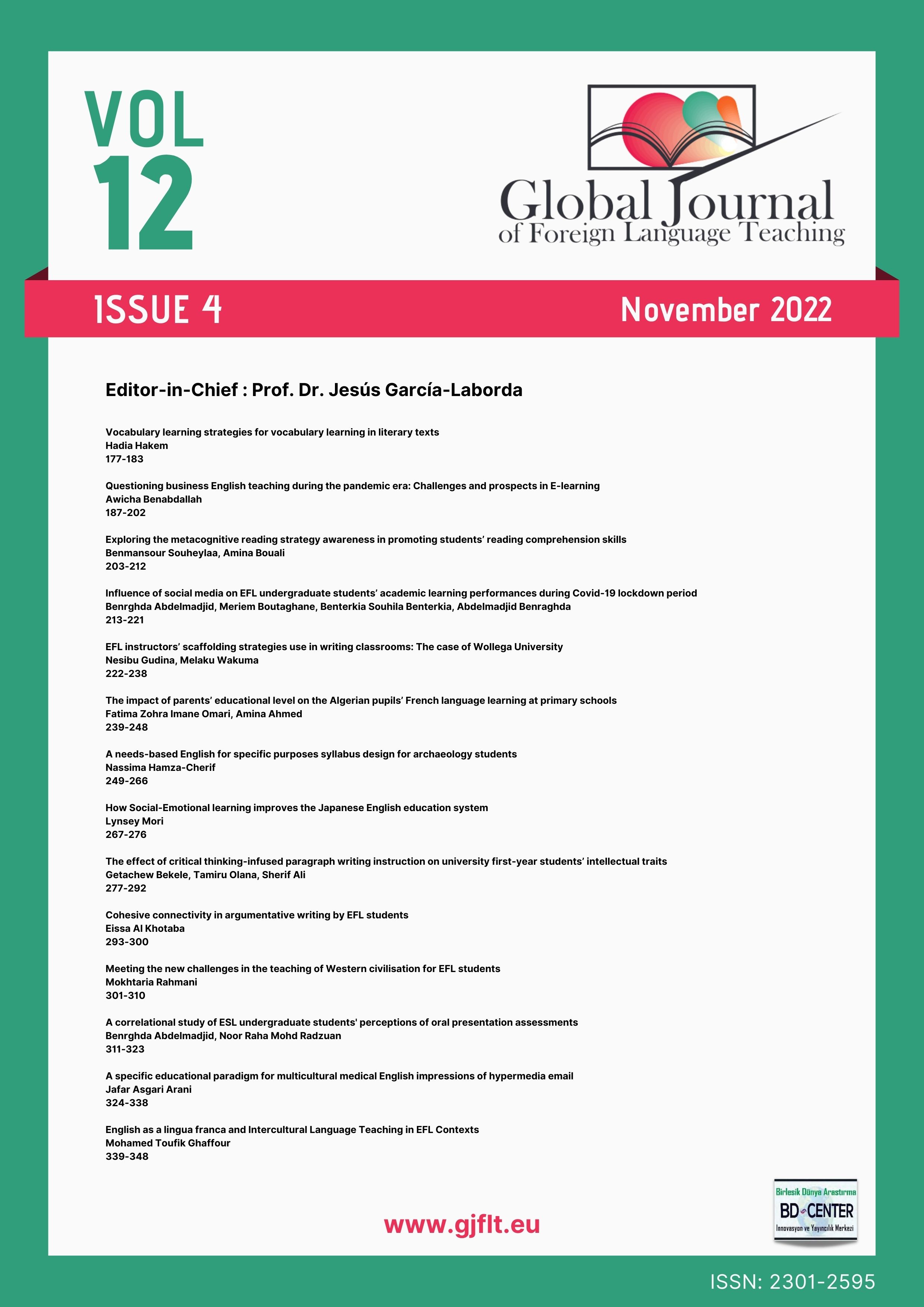EFL instructors’ scaffolding strategies use in writing classrooms: The case of Wollega University
Main Article Content
Abstract
Second language acquisition is facilitated when teachers provide the necessary assistance for the learners through the process of scaffolding. The study aimed at identifying the scaffolding strategies EFL instructors use in writing classrooms at Wollega University. Six EFL teachers were video recorded while teaching writing to first-year students in Communicative English Skills II. The video-recorded data were transcribed and analyzed using Open code project software. Interview data were also used to strengthen the teachers’ classroom activities. The data from the interview were analyzed through narration according to specific themes. The result indicates that the instructors use scaffolding strategies like a questioning, explanation, inviting learners, repeating students’ utterances, praising learners, giving instruction, recasting, directing students’ thinking, giving feedback, use of L1, and others. Contrary to the use of scaffolding strategies, the misuse of the strategies has to be given attention to enhance its usage.
Keywords: Interaction; scaffolding; strategies; writing.
Downloads
Article Details

This work is licensed under a Creative Commons Attribution-NonCommercial-NoDerivatives 4.0 International License.
Authors who publish with this journal agree to the following terms:- Authors retain copyright and grant the journal right of first publication with the work simultaneously licensed under a Creative Commons Attribution License that allows others to share the work with an acknowledgement of the work's authorship and initial publication in this journal.
- Authors are able to enter into separate, additional contractual arrangements for the non-exclusive distribution of the journal's published version of the work (e.g., post it to an institutional repository or publish it in a book), with an acknowledgement of its initial publication in this journal.
- Authors are permitted and encouraged to post their work online (e.g., in institutional repositories or on their website) prior to and during the submission process, as it can lead to productive exchanges, as well as earlier and greater citation of published work (SeeThe Effect of Open Access).
